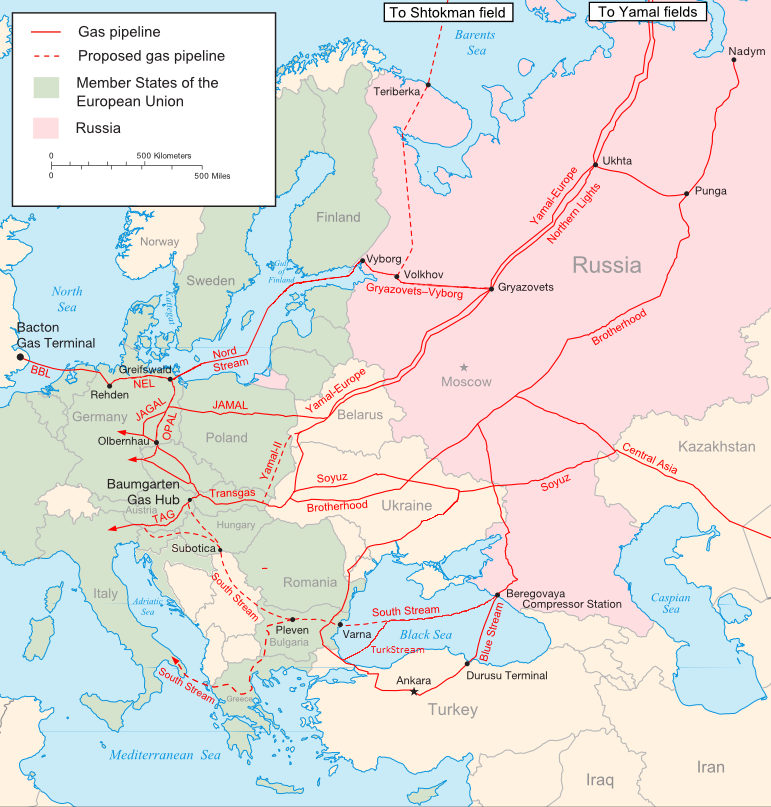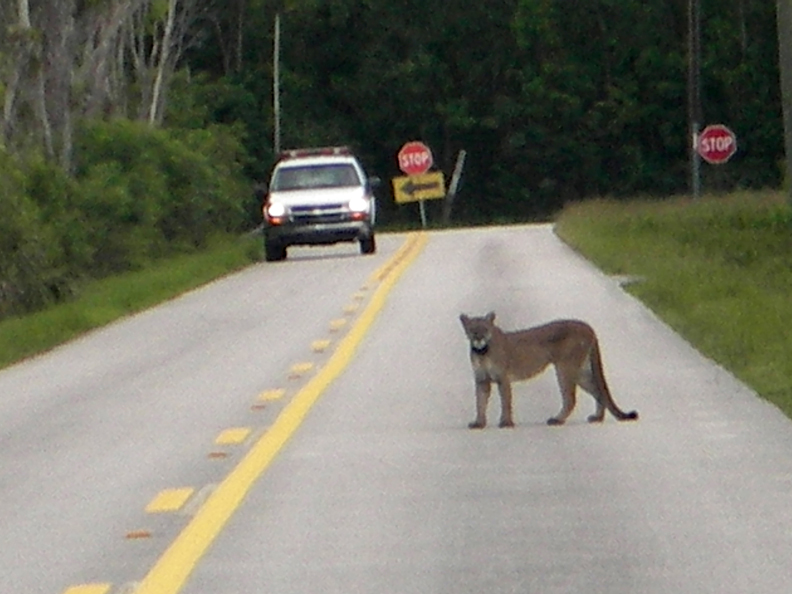All eyes are on the war in Ukraine these days, and with good reason. The invasion is far from the only conflict in the world — Yemen, anyone? — but Putin’s actions could do a lot to destabilize much of Europe, if not the entire planet.
Much of the media coverage around Ukraine serves to examine what’s happening in the moment — bombs falling, tanks rolling and so on — so we’ve collected some important environmental reads about Ukraine, which also show how we can move forward. We’ve included some other news you might have missed while the war dominates the news cycles.
Vladimir Putin’s aggression and weapons of destruction would not be possible without Russia’s abundant supplies of oil and natural gas. That’s why, as Bill McKibben argues in The Guardian, this war should serve as an incentive to expand renewable energy sources as quickly as possible:
So now is the moment to remind ourselves that, in the last decade, scientists and engineers have dropped the cost of solar and wind power by an order of magnitude, to the point where it is some of the cheapest power on Earth. The best reason to deploy it immediately is to ward off the existential crisis that is climate change, and the second best is to stop the killing of nine million people annually who die from breathing in the particulates that fossil fuel combustion produces. But the third best reason — and perhaps the most plausible for rousing our leaders to action — is that it dramatically reduces the power of autocrats, dictators, and thugs.
This change is past due, especially in Europe, as The Energy Mix pointed out recently (quoting energy analysts at IEEFA):
“Instead of diversifying the EU’s sources of energy to replace gas, Europe has spent a great deal of time diversifying gas supply routes, particularly pipelines from Russia.”

The move away from oil and gas needs to happen quickly, before more conflicts emerge, as Sammy Roth writes for Los Angeles Times:
It’s also important to remember that climate change poses a major national security threat, with the Defense Department and other federal officials warning last year that worsening climate-fueled hazards are likely to drive a surge in global migration, stoking political instability. That helps explain why the U.S. Army released its first-ever climate strategy this month, setting a goal of slashing its planet-warming emissions in half and powering all bases with climate-friendly electricity by 2030.
Of course, most news reports about the Russian invasion don’t mention the connection to oil and gas. Over at Neil Young’s Times-Contrarian news site, activist Rev. Billy Talen (a Revelator contributor) calls out media coverage of the war for omitting its environmental impact:
The Earth is the third party in this war by Russia on Ukraine. … How would the war’s violence look in the context of the great extinction of life that is now ongoing everywhere on the planet?
As many experts say, “Every story is a climate story.” Writing for Columbia Journalism Review, Covering Climate Now founder Mark Hertsgaard encourages journalists to put the Ukraine crisis in a climate context:
With heat-trapping emissions and global temperatures both continuing to rise, drought is bound to keep afflicting the U.S., Ukraine, and many other regions of the world. The consequences — for food production, social stability, and war and peace — are immense. News coverage should treat them accordingly.
Indeed, the need to expand our coverage of both the climate and extinction crises is broader than this one war, as Talen continued:
We have an obligation now, with what we know of the interconnectedness of all life, and with the high stakes of the great extinction, to bring the natural world to the foreground. We can’t afford to have any human drama that doesn’t mention the Earth, not now. We will have to discover a whole new kind of language — to foreground the Earth in sporting events, fashion shows or when Paul McCartney emerges from a limo.
While we’re calling out the media’s failure to link this war to environmental issues, we should also point out how badly last week’s latest United Nations climate report got buried in the “if it bleeds, it leads” news cycle.
Take CNN, for example. The climate report had an all-too-brief, yet prominent, placement on its website on Monday morning, but it quickly got shuffled down into far less important news:

That “crucial tipping points” headline deserved at least equal prominence as the network’s Ukraine coverage. But boy, how about that Derek Jeter news, huh?
Want to know more about the new Intergovernmental Panel on Climate Change report? Here are a few must-read links:
-
- UN climate report: ‘Atlas of human suffering worse, bigger’ (Associated Press)
- 5 takeaways from the latest United Nations climate change report (The Washington Post)
- Urgent action on climate change needed ‘to secure a liveable future,’ U.N. report warns (NBC News)
- Against backdrop of war, major climate report calls for adaptation and mitigation now (Bulletin of the Atomic Scientists)
- The world is getting climate change adaptation wrong (Quartz)
- Transformational change is coming to how people live on Earth, UN climate adaptation report warns: Which path will humanity choose? (The Conversation)
And if you want to dive even deeper, here’s the 3,500-page IPCC report itself. (Don’t worry, there’s a summary, too.)
Updates on previous stories:
Remember our recent op-ed about the need for an international treaty on plastic pollution? Well, the world listened, and one could soon be on the way.
And you know how plastic and other chemical manufacturers pose a threat to the climate? It turns out climate-fueled storms, wildfires and sea-level rise will bring threats to these very same hazardous chemical facilities.

In wildlife news, eight Florida panthers have died so far this year— compared to 27 in all of 2021. This year’s mortalities to date were all caused by motorists. At this rate, how much longer can Florida panthers survive?
What’s in a name? The spongy moth has the answer. Formerly known as the gypsy moth, a name based on a derogatory name for the Romani people, the change in moniker is one of two new steps in the move to decolonize species and place names. The other is an initiative by Interior Secretary Deb Haaland to remove the offensive term “squaw” from an astonishing 660 sites in the United States — a welcome change, indeed.
One last thing:

Could climate change kill off Florida’s beloved Key deer? Hurricane Irma wiped out 30% of the species in 2017, and although they’ve rebounded since then, the threat of more intense storms loom over both the tiny deer and the low-lying islands they call home. Noted conservationist Stuart Pimm told The Guardian that warmer temperatures, extreme weather events and sea-level rise “may not be quite as direct as someone going out with a shotgun and killing a bald eagle, but they are every bit as potent a factor in causing species extinctions.”
Something to think about as we celebrate Key Deer Awareness Day on March 11.
![]()


